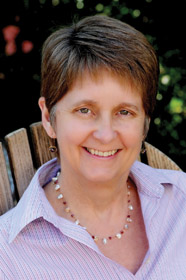
The key to keeping the cost of divorce down is reducing conflict. The North Bay is home to many qualified attorneys, mediators, and mental health professionals who have a goal of helping parties find points on which to agree. Most divorce-related professionals in the North Bay adopt the attitude that parties “win” by fully informing themselves about the financial and mental health-related consequences of their decisions. Parties who understand how their agreements will affect them in the future do not return to the table to reargue their case.
 When ending a marriage in Marin, Napa, or Sonoma County, know that there is no “average cost for a contested divorce, according to Catherine Conner, a Santa Rosa-based family law attorney. “It depends upon how many hearings are needed before a trial, the complexity of issues, litigiousness of the parties and lawyers, whether the case goes to trial or settles before and other factors,” she says. “A minimum is likely to be $25,000 per party, [but] many will be in the $70,000 to $100,000 per party range for a moderate amount of litigation, and some could end up in the hundreds of thousands of dollars for fees for very complex cases.”
When ending a marriage in Marin, Napa, or Sonoma County, know that there is no “average cost for a contested divorce, according to Catherine Conner, a Santa Rosa-based family law attorney. “It depends upon how many hearings are needed before a trial, the complexity of issues, litigiousness of the parties and lawyers, whether the case goes to trial or settles before and other factors,” she says. “A minimum is likely to be $25,000 per party, [but] many will be in the $70,000 to $100,000 per party range for a moderate amount of litigation, and some could end up in the hundreds of thousands of dollars for fees for very complex cases.”
Limiting the amount of time that attorneys and other professionals spend on the case helps decrease the total cost. Yet there are times when having an attorney or a mental health professional is necessary to avoid being taken advantage of or to dissipate an argument. Each divorce is different. The “magic formula” is one that parties to a divorce create by deciding where they can agree and moving on from that point.
Learning your options for a North Bay divorce starts with looking at how you interact with your former partner. Parties who agree about many issues can complete the forms with help from a family law facilitator at their county’s self-help center. Individuals with a former partner who is abusive should work with an attorney to reach resolutions. There are minor differences between divorcing in Marin, Napa, and Sonoma counties. Marin offers additional assistance for self-represented litigants that the other two counties do not. Napa has a less cluttered calendar than Marin or Sonoma, which makes it easier to schedule court proceedings. All three counties have an extraordinarily high number of qualified attorneys and mental health professionals with experience in family law.
Process options
There are five options for divorce. The options include: do-it-yourself, mediation, arbitration, collaborative law and contested divorce. Do-it-yourself involves completing and filing the court forms on your own. Marin, Napa, and Sonoma counties each have a self-help center. There, a family law facilitator will not charge parties to receive an explanation of court procedures and get assistance completing the forms. The do-it-yourself option is the most low-cost method to get a divorce.
Mediation involves resolving issues with a neutral mediator. A mediator helps both parties understand their rights and obligations and reach mutually agreeable terms. The parties can hire attorneys to be present with them but are not required to do so. If the parties reach agreements, the mediator can draft a written agreement to be filed with the court.
Arbitration involves a trial in a private setting in which the parties’ disputes are settled by a neutral arbitrator. The parties can hire attorneys to be present with them. The arbitrator, typically a retired judge or expert family law lawyer, hears the case and issues an order just as a sitting judge would.
Collaborative law is a flexible process that typically involves parties convening with their attorneys, therapists, and coaches. The parties and collaborative lawyers sign a stipulation saying they will try to resolve their issues without resorting to litigation. Collaborative law attorneys are often trained in therapeutic techniques.
 “If you’re using the court’s self-help center to complete a case from start to finish, then you have to make at least two trips—first, to fill out and file the initial court forms, and second, to complete all the final papers. You can save time from making extra trips by first reviewing the court forms online to familiarize yourself with the required information. They can also visit their county’s family court webpage and read the instructions about what materials to bring to the facilitator. That way the facilitator can help the party complete the paperwork properly on the first visit,” says Michael Apicella, a Petaluma-based family law attorney.
“If you’re using the court’s self-help center to complete a case from start to finish, then you have to make at least two trips—first, to fill out and file the initial court forms, and second, to complete all the final papers. You can save time from making extra trips by first reviewing the court forms online to familiarize yourself with the required information. They can also visit their county’s family court webpage and read the instructions about what materials to bring to the facilitator. That way the facilitator can help the party complete the paperwork properly on the first visit,” says Michael Apicella, a Petaluma-based family law attorney.
A party who wants the help of an attorney only with certain tasks, such as research, negotiation, or investigation, can get assistance by paying the attorney by the hour for “unbundled services,” says Conner.
Parties interested in mediation should know each mediator has their own style. “I try to get it all done in one day. We plan a way to resolve future disputes. I try to keep everyone in the same room as long as I can, even if it’s uncomfortable. My idea is, why not demonstrate the process (of resolution). This is how we’re going to solve conflict,” says Lynn Duryee, a retired Marin County judge who is now an arbitrator and mediator with JAMS, a panel of retired judges and attorneys who resolve disputes.
Hiring other professionals
One of the hardest parts of divorce is figuring out how to separate a “single pot” of assets. The pot may include big-ticket items such as real property and pensions. Parties may choose to hire financial professionals such as an actuary, who determines how to reduce the financial impact of an adverse event, an appraiser, who estimates the value of a complex item like a house, and a forensic accountant, who analyzes documents to determine the parties’ accurate incomes, debt, and assets.
Parties unfamiliar with the process of divorce may consider hiring divorce coaches, who guide them through the different steps. A divorce coach can be an attorney or therapist or have a background similar to a life coach. Parties dealing with complex emotions may want to hire a mental health professional such as a psychologist, marriage and family therapist (MFT), or licensed clinical social worker (LSCW).
Parents resolving child custody disputes may consider hiring a mental health professional to see each of the children as well as their own mental health professionals. The hourly and retainer rate for professionals varies by profession and county.
 A mental health professional helps reduce cost by minimizing conflict. “I have families that have been in and out of court for 10 years because there’s a constant stirring up of the animosity between the parents. Some people become so focused on winning or losing that they look at their kids as a piece of the pie. If people can find ways to talk to one another without it becoming completely adversarial, it’s better for them and better for the kids,” says Randy Cheek, a Santa Rosa-based MFT.
A mental health professional helps reduce cost by minimizing conflict. “I have families that have been in and out of court for 10 years because there’s a constant stirring up of the animosity between the parents. Some people become so focused on winning or losing that they look at their kids as a piece of the pie. If people can find ways to talk to one another without it becoming completely adversarial, it’s better for them and better for the kids,” says Randy Cheek, a Santa Rosa-based MFT.
Sometimes parties don’t consider hiring a professional because they are overwhelmed by their feelings. “In the moment, often times, the divorcing party doesn’t care. They frequently don’t have the ability to take in information. But in a high-asset case, hiring a forensic accountant to determine necessary facts often allows a party’s attorney to maximize their client’s interest,” says Renee Marcelle, a San Rafael-based family law attorney.
 Leslie Juris, a Napa-based family law attorney, says it’s particularly important that divorcing parties understand issues regarding property. “When it comes to custody and visitation of children, you can always modify an order if there has been a material change in circumstances. But often when you sign off on a judgment regarding property, you may have waived your rights forever,” says Juris. “Parties often get confused by the division between separate property, which is typically property acquired before a marriage, and community property, property acquired during marriage. For example, [if] a husband bought a home before the marriage. The parties, i.e. “the community,” made payments towards the mortgage for the house during the marriage. This means the community made the mortgage payment. The community is therefore entitled to reimbursement for the principal pay-down, meaning the wife is entitled to reimbursement for one-half of those payments. If she gives that amount up because she does not know the law, or how to apply it, she may have lost the right to it for good.”
Leslie Juris, a Napa-based family law attorney, says it’s particularly important that divorcing parties understand issues regarding property. “When it comes to custody and visitation of children, you can always modify an order if there has been a material change in circumstances. But often when you sign off on a judgment regarding property, you may have waived your rights forever,” says Juris. “Parties often get confused by the division between separate property, which is typically property acquired before a marriage, and community property, property acquired during marriage. For example, [if] a husband bought a home before the marriage. The parties, i.e. “the community,” made payments towards the mortgage for the house during the marriage. This means the community made the mortgage payment. The community is therefore entitled to reimbursement for the principal pay-down, meaning the wife is entitled to reimbursement for one-half of those payments. If she gives that amount up because she does not know the law, or how to apply it, she may have lost the right to it for good.”
The duties of a financial professional may include preparing legal financial disclosures, educating clients as needed regarding their finances and monthly budgets, facilitating discussion of settlement options, and bringing the voice of financial reality to discussions.
“I’m always concerned with what the children’s expenses are and what it costs for them to live in each household. I help each parent develop a budget so they can meet their children’s needs. The cost of college is not something the court will decide because the court deals exclusively with minor children. Often, there is one party who has a higher learning curve about the family’s finances than the other. I spend more time with that person to bring them up to speed so they can confidently negotiate a successful agreement. This is because in order for parents to make an agreement, both people need to understand it and what it will mean for them in the future,” says Judith Sterling, a Santa Rosa-based CPA and certified divorce financial analyst.
Attorney fees
Family law attorney fees in Marin, Napa, and Sonoma typically range between $200 and $550, depending on the number of years the attorney has been practicing. Attorneys usually charge for the amount of time they spend working on a case. This contrasts with how criminal defense attorneys may charge a flat fee for a retainer or specific type of case, such as a DUI. Family law attorneys usually bill in increments of tenths of an hour. If an office has a paralegal or legal secretary, this employee can be assigned to work on parts of a case, such as drafting certain portions of a motion. Their hourly rate is usually considerably lower than an attorney’s.
There are several grounds upon which a party can request that the other pay his or her legal fees. One is a need-based fee award. When deciding the issue, a judge may consider the incomes of both parties and the assets each of them controls. The purpose of a fee award is to enable both parties to get access to legal representation. At times, this involves the court ordering the party with more resources to pay the other party’s attorney’s fees. A party may also request payment of attorney’s fees if the other party unreasonably delays settlement. A fee request may be denied or granted only in part based on the other party’s inability to pay.
Differences between counties
A divorcing party must file a petition for divorce in the county where they or their former partner live. Marin offers in-court legal assistance by volunteer attorneys for self-represented litigants on the first Tuesday of every month and in the third week of the month. Divorcing parties do not need to have a low income to receive help. Marin requires parties to attend bench bar settlement conferences to resolve financial issues. Sonoma requires parties to participate in a mandatory settlement conference to minimize litigation. Attorneys who have been in practice for at least 10 years are asked to volunteer their time as panelists for the settlement conferences.
Sonoma typically has the busiest court calendar. The court may set a hearing out three months from the date a party files a motion. In Napa, you can select and be assigned a court date within 30 days from when you file a Request for Order.

“We tried to establish a collaborative law practice group in Napa but it failed. We could not get mental health professionals to join. It is too easy to go to court here,” says Lulu Wong, a Napa-based family law attorney.
Family lawyers in all three North Bay counties describe the region as an area with conscientious judges who devote time to read the pleadings and apply the law to the facts. In addition, attorneys in this area are more collegial than in other places.
“How attorneys practice family law here is very different from how attorneys practice family law in Southern California. We try to resolve and settle our cases in order to keep acrimony down for the families in conflict. We stipulate to things like pick up and drop off times for the child custody exchanges. In Los Angeles, logistics like this would require a court order,” says Wong.
Divorce for retirees
Parties who are contemplating or entering retirement have unique concerns when it comes to calculating income for spousal support. “Questions such as when are the parties going to retire and how will that affect their income are important when considering support,” says Apicella.
Retirement significantly affects spousal support. Spousal support is often the most contested issue in a divorce case. “It’s very frightening when you planned for retirement, but now you have to support two households instead of one. There are questions about whether people will need to move away from where they currently live or extend how long they will work,” says Conner.
 “Usually the party who is paying spousal support looks forward to retirement for obvious reasons and because they will get to pay a lower amount. Yet because of the cost of maintaining separate households and the division of the joint retirement account, the party (paying spousal support) may have to work another 10 years. This can lead to resentment and conflict. It kind of has a trickle-down effect on everything,” says Juris.
“Usually the party who is paying spousal support looks forward to retirement for obvious reasons and because they will get to pay a lower amount. Yet because of the cost of maintaining separate households and the division of the joint retirement account, the party (paying spousal support) may have to work another 10 years. This can lead to resentment and conflict. It kind of has a trickle-down effect on everything,” says Juris.
Pension plans are a hotly contested issue. “Sometimes options chosen at the time of retirement for public service pensions such as CalPERS and CalSTRS are challenging to change, or can only be changed in limited circumstances. This can impact the surviving spouse’s benefits if the participating spouse predeceases the surviving spouse. If a divorcing party is a non-participating spouse under any pension plan, he or she should get information on their options prior to the other party retiring. The non-participating spouse usually will have to sign off on options chosen by the participating spouse,” says Carla Boyd Terre, a Santa Rosa-based family law attorney.
Dealing with an uncooperative party
Some lawyers advise that when a former partner is abusive, has a substance abuse issue, or a serious mental health issue, the other party should pursue a contested divorce. Drawing attention to a former partner’s intentional acts can be an important part of lowering costs. The party who has concerns about the former spouse should document those issues.
“If one party to a divorce is afraid of the other, there’s a power imbalance,” says Cheek. “Then the party who is afraid may need orders from the court. Domestic violence has so many different layers. There’s the tone of voice, the look, and the body language, all of which constitute coercive control.”
A party who suspects a former partner has hidden assets should hire an investigator if they believe the asset can be located.
“If a former spouse hid assets willfully, they risk losing the entire asset. For example, say someone hid $100,000 of community funds in an offshore account. If you find out they did it on purpose to avoid division of the asset, you get their half plus your half,” said Juris.
Advice for parents
No matter what type of divorce two parents select, they should work to improve communication. “You want to be successful at this for your kids. It’s an investment. What makes sense for the family is for you to see the other party as your co-parent who loves the kids as much as you do,” says Wong.
Apicella recommends parents keep mediation sessions focused on relevant facts rather than emotional issues. That way, parties can address their respective rights and obligations efficiently and thus, avoid incurring more fees.
“Therapy is a better forum than mediation to address emotional issues that may be preventing a party from coordinating with their ex on the legal issues,” says Apicella. “You don’t want to go into a mediation session and spend all of the time talking about your negative feelings related to irrelevant issues.”
Finding an attorney
Contact your county bar associations for several referrals to family law attorneys. The California Bar Association’s website indicates whether attorneys have a disciplinary history. Consider an initial half-hour consultation with a prospective attorney.
“One of the best ways to control costs is to make sure the first lawyer you hire is a good fit,” says Boyd Terre. “Trusting your lawyer is crucial to a successful lawyer-client relationship.”
New Tax Law May Impact Spousal Support
On January 1, 2019, the Tax Cuts and Jobs Act will take effect, eliminating the ability of a party paying spousal support to deduct these payments from annual income for tax purposes. The change only applies to spousal support orders or stipulated settlement agreements finalized, or modified after December 31, 2018.
Beginning January 1, a recipient of spousal support will no longer be required to pay taxes on this income provided the order or agreement is finalized or modified after the start of the new year. A current recipient of spousal support must continue to pay taxes on this income if the agreement or judicial order was finalized or modified on or before December 31, 2018.
The change to the federal tax code is most likely to have a greater impact on higher earners.
 “We are advising all of our payor clients to conclude their spousal support orders prior to the end of the year. That typically means we will deliver it to the clerk’s office no later than December 10, 2018. You want to have enough time for the judge to sign it,” says Renee Marcelle, a San Rafael-based family law attorney.
“We are advising all of our payor clients to conclude their spousal support orders prior to the end of the year. That typically means we will deliver it to the clerk’s office no later than December 10, 2018. You want to have enough time for the judge to sign it,” says Renee Marcelle, a San Rafael-based family law attorney.
Marcelle says tax deductibility is only permitted pursuant to a court order or written stipulated agreement signed by a judge. “To expedite orders an attorney can walk a stipulation, an agreement signed by both parties, into the assigned Judicial Officer’s court and request the judge to sign it,” says Marcelle.
The change in the law covers both temporary and permanent support. Temporary spousal support is support that the payor pays while the divorce is pending until execution of a final judgment of dissolution. Permanent support is support paid after the divorce is final. The payor typically pays it for a specific duration after the dissolution. Though it’s called “permanent support,” that doesn’t necessarily mean the payor must pay it forever.
Marcelle advises that a payor with children who wants to maximize deductibility should consider finalizing or modifying their existing permanent spousal support agreement and/or order before the end of this year. They should consider fashioning an agreement that combines child and spousal support as fully deductible “family support.”
“This typically creates a larger sum for the payee spouse, the entirety of which is fully deductible by the payor,” says Marcelle. “The payee, however, must pay taxes on the larger sum. Typically, this formula renders more income for both parties—making it a win-win.”




